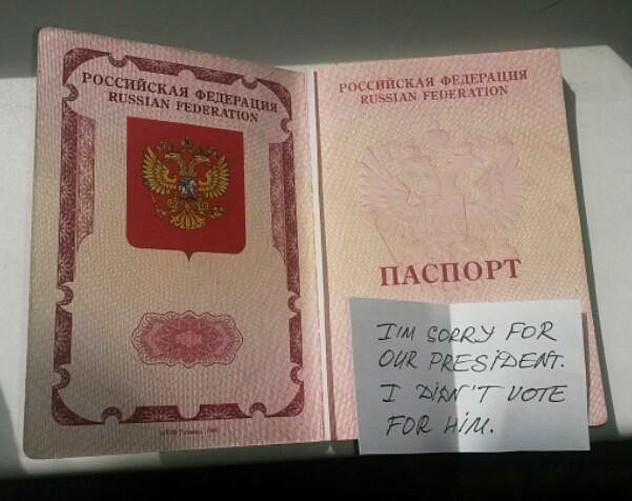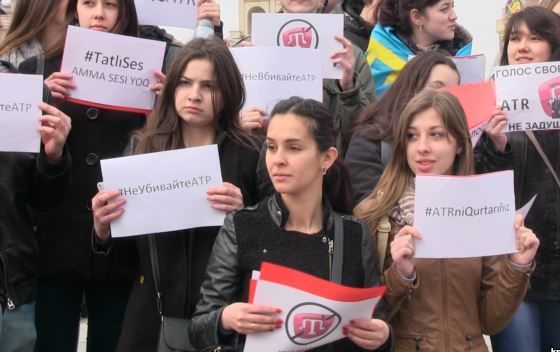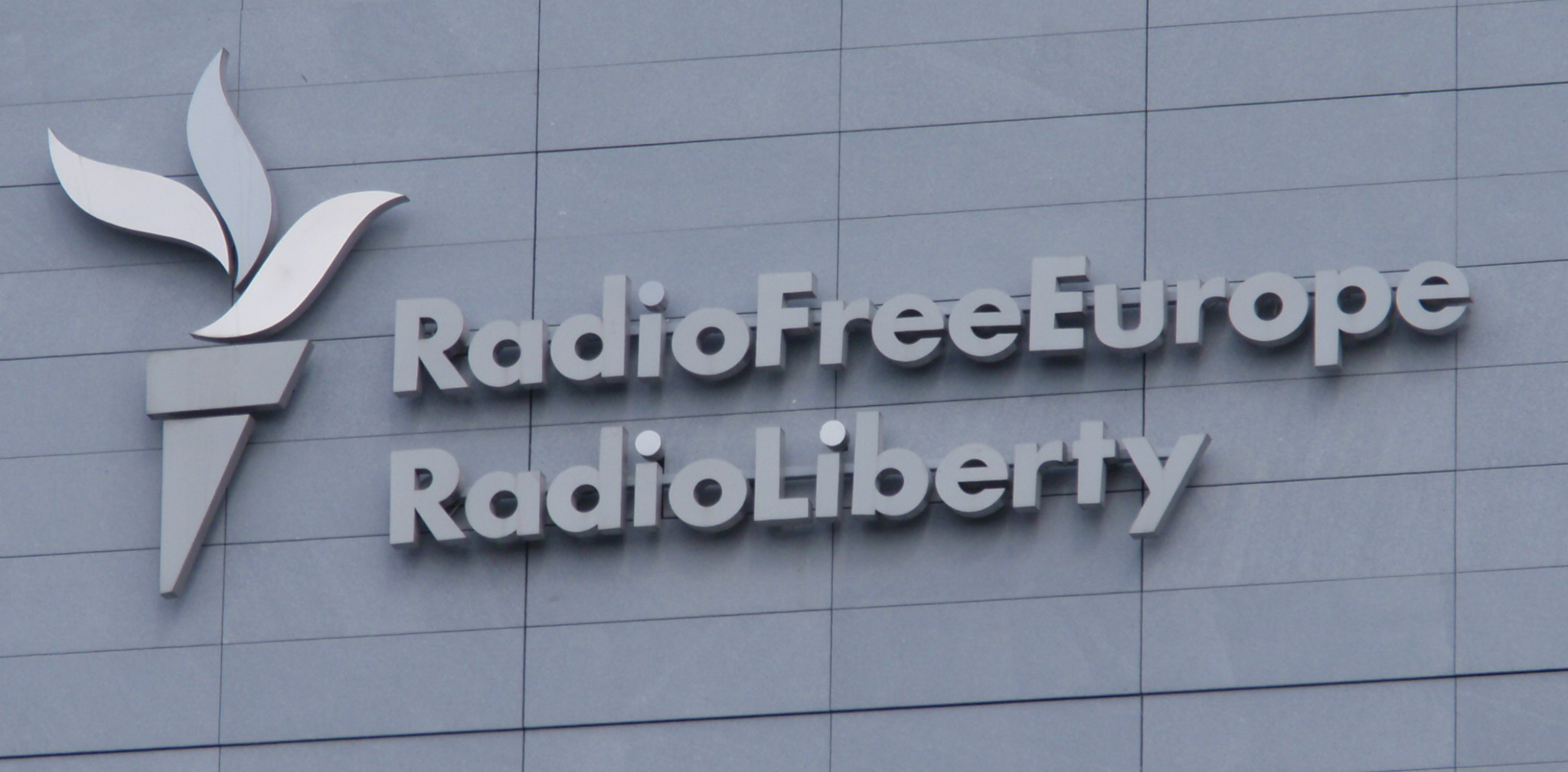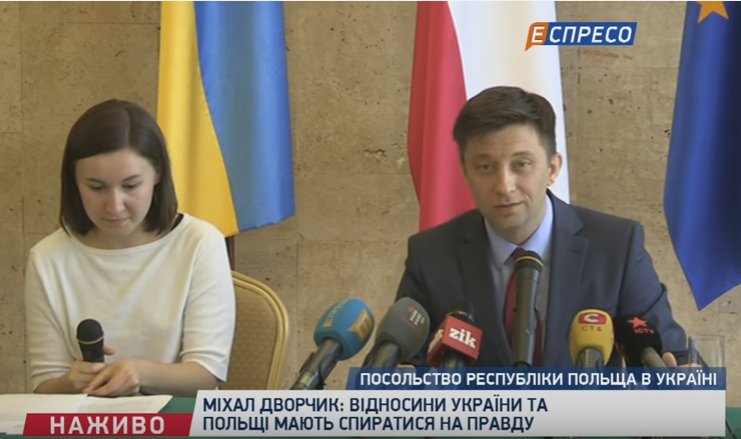By Vera Kichanova
The crisis in Ukraine has soured attitudes toward Russians abroad. This animosity was not felt merely by the energy and finance CEOs banned from entering the EU nor by just politicians who cannot visit the US. Ordinary tourists abroad now have to make excuses for the annexation of Crimea and the shooting-down of MH17. A recent poll by Pew Research Center, held in 44 countries from March through June 2014, showed that 43% of the respondents have a negative attitude toward Russia. Russia's negative rating has increased almost twofold since 2013 in the US, the UK, Poland, Germany, Italy, Spain, and France. Americans came out on top; their opinion about Russia has worsened by 29 percentage points, while this figure was 27% for the Poles and 24% for the Brits. 60% of Ukrainians expressed a negative attitude toward Russia today, compared with merely 11% in 2011.
The story of a huge fight between Russian and Ukrainian tourists at a Turkish resort, with slogans like "Moskalyaku na gilyaku!" ["Hang the Russian!"] being shouted has turned out to be a fake. However, Russians do face politically-based conflicts when travelling abroad. For Russian passport holders, trying to enter a county has never been harder than it is now. This week, a press-conference titles "How to make your holiday safe: Problems for Russian tourists abroad" was held. The press-conference came to the conclusion that the media should write more about Russians having troubles abroad and that it was the time to develop domestic tourism if Russians were finding so little sympathy in other countries.
Russians even face hostility in former Soviet republics. On the eve of the Victory Day (May 9) in Homiel, Belarus, cars with Russian license plates were defaced with the word "congratulations". The Russian two-headed eagle was painted with green paint on the hood of one car, while someone wrote "Happy Victory day!" on another. In Minsk, the capital of Belarus, Russian cars are at risk of their tires being pierced and windows broken. In Kaunas, Lithuania, "Crimea is ours" was carved out on a car with a St. George ribbon. Social network users who disagree with the Russian policy on Ukraine recommend that people put a slip of paper that says "I never voted for Putin" on their foreign passports.
Slon gathered a few stories from Russians who have to engage in geopolitical debates abroad against their will.
"It's important to convince them that not all of us are dumb drunks in Crimea t-shirts"
Kseniya Vitsinskaya
32 yrs, Manager of the film festival "2morrow"
I traveled throughout Europe from March 27 to May 5. The first stop was my favorite: Barcelona. My friend and I checked in at the best hostel in the city and started a talk with an employee at the reception desk. She was a nice girl from Lithuania. The talk was mostly positive until she found out we were from Russia. Than her face soured and she said, raising her voice: "What your country is doing to Ukraine, to Crimea, is horrible! It's a nightmare!" Just a couple of weeks ago my friend and I had attended a rally for peace and in support of Ukraine (by the way, almost all my friends, and even my mom, were there, too), so we told the hostel employee about that. We also added that not everyone in Russia, especially in Moscow, endorses Putin's policy, and we all oppose war. The Russian media had not yet gone into full-fledged hate speech when this exchange happened, and people really did oppose war, and there wasn't so much aggressiveness. The girl calmed down and softened up, but there was still an unpleasant aftertaste.
Later, I met a lady in her 40's from the UK. The talk was quite warm before she asked the usual "Where are you from?" I told her that I was from Moscow, Russia. The lady bit her lip and announced: "What Russia did to Crimea is awful." I answered that although it's really only Russians who live in Crimea and it's more Russian than Ukrainian, the annexation was nevertheless horrible because it was outside of the legal framework and everyone must obey the law. We parted with the lady on quite good terms. I also told her about the "March for peace." It's weird that the European media didn't cover this event, even though the rally in the center of Moscow saw massive attendance.
Then, I flew to Munich. I noticed happiness among the elderly Russian diaspora representatives due to the "takeover" of Crimea - they all watch Russian TV there and support Putin. In late April, I went to Berlin, and one evening a very handsome Swede of about 40 started talking to me in a cafe. When he found out I was from Russia, he smiled nicely and said: "Well, then let's not talk politics." A company of Irishmen just laughed and called my country an aggressor, but they did it in a joking tone - they got drunk with tasty German beer and were in too good a mood for arguing politics.
Once at dinner in a restaurant I talked with a very nice couple: the man was from Amsterdam, and the woman from England, I believe. When they found out I was from Russia they started asking me about politics. As usual, I told them that not everyone supported Putin, but that there was this awful propaganda and ordinary people believed it, hence his high figures at elections. We talked about awful laws, political prisoners and censorship. They told me European media have been offering one-sided coverage of Russia. Of course Putin's aggressive policy is to blame - look how people in Europe don't like Americans due to US policy! - but the European media has played its part as well. Most Europeans believe all Russians support Putin.
When Europeans see a well-mannered Russian who goes to exhibitions and concerts, behaves tactfully and speaks English, they get very surprised. Usually, they see arrogant tourists who don't speak English - alas, there really are quite a few of such Russians, especially at sea resorts. But each time I managed to convince them that Russians, like people of any nation, differed a lot. Many civilized Russians just don't say they are from Russia. It is important to talk to Europeans, not to be ashamed of saying where you are from and to convince them by your own example that not all Russians are dumb drunks in t-shirts that say “For Putin!” or “Crimea is Ours!” If we want to cool down the hatred, we have to stop being ashamed of saying: "I'm Russian!"
"As soon as you say you are from Russia, people call you a fascist!"
Elena
24 yrs
I've just come back from England. There, as soon as you say you are from Russia, people call you a fascist! They start asking how we aren't ashamed of killing the poor Ukrainians. And they keep saying that we have remained the fascists we always were. When you ask why we are fascists, they recall the Polish officer massacre at Katyn; why Katyn and what does Ukraine have to do with it? People were going to a club on the subway, and we started talking. It was OK before they found out we were from Russia, but then all claimed "You’re all fascists there!" I wasn’t offended and reminded them anout Ireland and Scotland which don’t want to be a part of the UK anymore. Well, they did not like that!
To tell the truth, I practically had to run away from London. There was also an incident in Oxford: they refused to serve me at a cafe because they heard me speaking Russian on the phone. They said they were sorry but it would be better for me to leave the restaurant. I didn't even argue - I spat on the table and left. I didn’t want to dine there all that much! Many times I had to answer the question: "Why are you doing this to Ukraine?" I answered "We don't want any part of Ukraine." While tactically annexing Crimea might be great for the navy and everything, everyone worries that a significant part of the budget will now go to Crimea... This is all our taxes!
Europe may not be sending tanks and fire upon us, but there is a real cold war, an informational one, going on against us. I'm too proud of my country to accuse the state of that. Not many nations in history could get territories back without a single shot, and that's a great victory and a great pride. But I can only say one thing: 85 percent of Europeans are stupid. They don't want to consider another point of view except the one their state offers them. Germany or Switzerland - it's the same. And there's no point in convincing them otherwise. It's very different in Serbia and Montenegro: they support Russians but can't say anything for fear of losing EU support.
"There used to be a distinction: Putin is one thing, and the Russians are another"
Igor Isaev
28 yrs, Journalist, Warsaw
I came to Warsaw ten years ago from Ukraine to study. We have an ethnically mixed family, so I knew some Polish. My acquaintances are all Poles and some Ukrainians and Belorussians. By the way, some of my friends are businessmen who have small stores or restauranst, and a lot of them started hanging Ukrainian flags. And I have begun to notice that during talks when no Russians from Russia are present they have increasingly started putting a collective blame on them. There used to be a distinction: Putin is one thing, and the Russians are another.
As I'm gay, I have a "gay finder" app on my iPhone. Some time ago, some friends and I started writing "Glory to Ukraine" or "FCK PTN" in Cyrillic instead of "hello." It even spread to this app. I was about to change the greeting, but then holidays started and a few nice gentlemen, obviously tourists from Russia, started replying with unpleasant things. One called me a "... Tyahnybok" [a Ukrainian nationalist politician]. After that, I decided not to remove these phrases and I'm even somewhat flattered by such "hate speech."
Our media are obviously pro-Ukrainian; not a single mainstream journalist came out in support of Putin in any way. But Putin's skyrocketing support in Russia was quite a shock for my fellow journalists - the polls were discussed for quite a long time. I think that after that, the Polish society has been expressing the idea that Russians support what Putin does and there are just a few Russian dissidents that have to be supported. It was the other way around before: Poles thought that a few Russians were oppressing millions of their compatriots, but now the proportion has reversed.
"He points at the sky and then goes ‘Boom!’ - that's him joking about the Boeing"
Fyodor Korshunov
24, Programmer
I live in Thailand and, frankly, haven't had many problems: I'm always smiling so they rarely recognize me as Russian. But in May, when everyone felt Russia would invade Ukraine, I was at a local Bike Week - a festival for bikers and their bikes. So, as I was walking with a friend near a booth where a Swede was selling helmets and band merchandise, I pointed at a mask (which looked like a balaclava) and said: "You could rob a bank in this one!" The salesman, a smiling fat Swedish biker, asks why we are laughing. I tell him: "You could rob a bank in that mask!" He laughs as well and then asks where we are from. I tell him we are from Russia. He replied: "You guys invaded f..cking Ukraine!" He was implying that a bank wouldn't be a problem. Then he asked how long we were going to stay and I told him that I had escaped the draft and looks like I'm not coming back. "Is it that bad?" - he sighs and adds that the part about Ukraine was a joke.
Right after the Malaysian Boeing 777 crash, we were riding a bus with ten Russians and Thai drivers from Malaysia to Thailand and passing the border control. The Malaysians stop the bus, a guy in uniform approaches, soldiers with assault rifles in tow (Southern Thailand is quite volatile, by the way: there was a terrorist act there the next day). The man in uniform asks for a list of passengers, then as I understood by his mimics and gestures, tells the driver: "Wow, all Russian." He points at the sky, then goes "Boom!" No one in the bus understands him. The man is laughing, the Russians are dumbfounded. Then the Thai driver gets it, he smiles, then I get it. I explain: "He's joking about the shot-down plane." The girls in the front feel offended: "That was Ukraine, they confessed, they shot it down, they thought it was a Russian plane.” A small argument begins and I explain to them that most likely it's the pro-Russian separatists who are to blame. This is the cover of a Malaysian paper on that day. I feel there's been quite a lot of Russia in the news. My wife and I mostly watch BBC or Al Jazeera, sometimes Fox News: Putin and Ukraine are everywhere! The Europeans are walking with papers - and he's on the covers!
"Someone even said he was sorry that they had such a president"
Nedim Useinov
31 yrs, Political analyst
I'm a Crimean Tatar, a Ukrainian national. I've been living in Poland for 13 years. We held a campaign against the annexation of Crimea: we tucked anti-war leaflets under the windshield wipers of Russian cars parked at malls. Many people from Kaliningrad [Russia's European exclave, former German East Prussia] go here on weekends. We tried not to start conflicts with the people themselves so that they wouldn't feel uncomfortable or besieged. The local media gave wide coverage of this campaign and conveyed our idea right: we don't want Kaliningrad residents to stop visiting, we urge Russians to maintain a dialog, rather than bicker. People from Kaliningrad approached us without any aggression, one even said he was sorry that they had such a president. However, the Kaliningrad tourism center did try to scare the locals with provocations.
The attitude toward Russia certainly did change, but not to the extent that most Poles would stop distinguishing politics and personal relations. People understand the Russians have fallen victim to the many years of TV propaganda. Many Poles could name a couple of Russian TV channels widely considered Kremlin propaganda mouthpieces, like Russia Today or Rossiya 24. But, yet again, no one stigmatizes Russians, even despite Putin's crazy ratings due to the Crimean euphoria. I haven't seen any aggression toward Russian-speaking people in Poland.
The problem is that the Russian opposition does not reach out abroad. The echo of Russian 2011-2012 protests is fading, and that's bad. It would be good if prominent Russian opposition figures came to Poland and tried to convey the truth that not everyone in Russia endorses Putin. The hatred can be softened by showing that there are groups of people in Russia who oppose the Kremlin's aggressive policy towards Ukraine and the EU, valuing friendship with neighbors. Citizen activists, journalists, politicians are in opposition to the Kremlin and are ready to shape the image of Russia as a normal nation with a peace-loving, not aggressive, society, and should be more active abroad.
"And then the officer asks me: ‘So what's the deal with Crimea?’"
Marina
40 yrs, Mother of a 13-year old athlete
We spend a lot of time in America; my son is studying there. When we came to America in March, at the luggage check zone, right before the exit, a curious thing happened. The customs officers are often quite slow, while everyone is tired after a long flight and lining up at the passport control, everyone wants to just grab their bags and leave. Then the officer asks me: "So what's the deal with Crimea?" He caught me off guard: I was ready to hear that at the passport control, not at customs. I gave an honest reply: "You know, I don't visit Russia often and I've never even been to Crimea." The customs officers laughed: "Yeah, Russia is large and now you've got Crimea to boot!" Even though Crimea wasn't ours yet.
Then we went to a contest with my son and people we talked to there were well-mannered and tactful. On the contrary, they worried about us, that this situation could create problems in the US for us, ordinary Russians. But concerning children, and the athletes come from all over the world, they try to discuss world problems even though they are just 15, and they are quite patriotic at that. Sure they discussed Ukraine between themselves. Everywhere we said we were from Russia and watched the reaction: the attitude of the staff at bars, hotels, and everywhere else was quite level-headed. Then, as an experiment, we started saying we were from Ukraine - the attitude became quite caring right away. It was obvious people wanted, if not to help, then to talk and get first-hand information.
As a conclusion I'd like to tell a story that happened to the author of this article at passport control in Tallinn, Estonia. A woman in the window examined my passport meticulously and then asked to step aside. When everyone flying from Moscow went to get their luggage, two Estonians in the uniform came up to me and led me into a small room. A sign was hanging on the wall saying in four languages, including Russian: "You've been brought to second-level control post. You have the right to know the name of your interrogator". I asked his name (and forgot it right away). The first question was standard: the starting point, the destination, the purpose. Then one of them suddenly asked what my thoughts were on Putin and Crimea and whether I voted for the Party of Regions. I smiled (I couldn't be frightened: they didn't look intimidating at all, although I got the impression that they did try) and explained I didn't think anything good about Putin, did not support the annexation of Crimea, and couldn't vote for Party of Regions even if I had wanted to: it's a Ukrainian party. The haughty officer who looked like an actor from an old Russian beer commercial, seemed genuinely surprised and started Googling. He showed something on the screen to his colleague, both nodded. I added that if they did get online they might as well look up that Putin's party was called United Russia - and I'd never voted for it either. They smiled in response and quickly let me go.
[hr]Source: slon.ru, Translated by: Kirill Mikhailov, edited by: Vladislav Litosh and Daniel Centore





